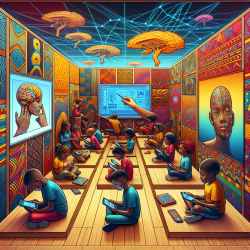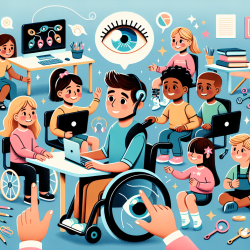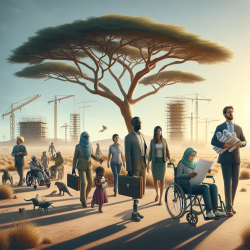In recent years, the field of cognitive training has seen significant advancements, particularly with the development of computer-based platforms designed to enhance learning and rehabilitation. One such innovation is the Brain Powered Games (BPG) package, developed by Michigan State University's Games for Entertainment and Learning laboratory. This platform is specifically tailored to address the needs of at-risk children in resource-poor settings, such as rural Uganda. The outcomes of a study titled "Designing and evaluating Brain Powered Games for cognitive training and rehabilitation in at-risk African children" provide valuable insights for practitioners seeking to improve their skills or explore further research in this area.
The Importance of Cognitive Training
Cognitive training programs are designed to harness the brain's plasticity—the ability to adapt and change throughout life. This principle forms the foundation for computerized cognitive interventions, which have been shown to produce positive changes in behavior and learning. In low-resource settings like sub-Saharan Africa, where traditional educational support may be limited, these programs offer a scalable and cost-effective solution.
Brain Powered Games: A Culturally Sensitive Approach
The BPG platform was developed with a focus on cultural sensitivity and adaptability. By incorporating local stimuli and sounds relevant to rural Ugandan children, the games provide a familiar and engaging experience. This approach not only enhances motivation but also ensures that the games are accessible to children with limited exposure to modern technology.
Key Features of BPG
- Themed Visual Design: Incorporates animals and objects native to sub-Saharan Africa, drawing inspiration from local art and storytelling.
- Simple Mechanics: Designed for ease of use with minimal technological experience required.
- Custom Data Recording: Allows flexibility in data collection tailored to local needs.
- Mobile Deployment: Compatible with various devices, including tablets and smartphones.
Study Outcomes: Promising Results
The study conducted with 33 Ugandan children diagnosed with HIV demonstrated clinically significant improvements in several cognitive domains following BPG training. These included processing speed, attention, visual-motor coordination, maze learning, and problem-solving skills. The results provide preliminary support for the feasibility and effectiveness of BPG as a model platform for cognitive training in cross-cultural low-resource settings.
Implications for Practitioners
The success of BPG highlights the potential for computer-based cognitive training programs to be adapted for diverse cultural contexts. Practitioners can leverage these findings to enhance their interventions and explore new avenues for research. The adaptability of BPG also underscores the importance of culturally sensitive design in educational tools.
The Road Ahead: Scaling Up Cognitive Training
As we look towards the future, there is a clear need to scale up successful interventions like BPG. This involves expanding access to these programs across different regions and ensuring they are integrated into existing educational frameworks. Collaboration with local stakeholders will be crucial in fostering sustainable development and maximizing the impact of cognitive training on at-risk populations.
For practitioners interested in exploring this innovative approach further, additional research can provide deeper insights into optimizing game design and implementation strategies. By continuing to build on the foundation laid by studies like this one, we can unlock new possibilities for enhancing education and rehabilitation worldwide.
To read the original research paper, please follow this link: Designing and evaluating Brain Powered Games for cognitive training and rehabilitation in at-risk African children.










